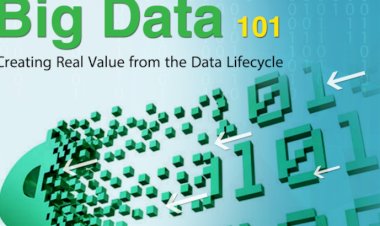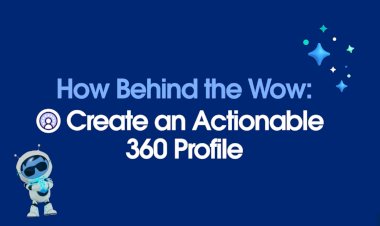Leveraging Data-Driven Business Applications for B2B Marketing Success

In the age of information, data has become a vital asset for businesses, especially in B2B marketing. It offers insights that allow companies to tailor their strategies, optimize their operations, and understand their customers more profoundly. Harnessing the power of data can be the difference between a good B2B marketing strategy and a great one. This article delves into the role of data-driven business applications in B2B marketing and how companies can leverage them to achieve greater success.
1. Understanding Data-Driven Business Applications
Data-driven business applications refer to tools and platforms that collect, process, and analyze data to support business operations and decision-making. In B2B marketing, these applications use data analytics to provide actionable insights that help businesses understand market trends, customer preferences, and behavior patterns. By employing data-driven applications, companies can move from guesswork to informed decision-making, ensuring their marketing efforts are targeted and effective.
2. The Role of Data in B2B Marketing
Data plays a pivotal role in various aspects of B2B marketing. From identifying potential leads to nurturing existing relationships, data-driven insights help businesses navigate the complex B2B landscape with precision. Here’s how:
- Lead Generation and Qualification: Data-driven applications analyze online behavior, company size, industry type, and other relevant factors to identify potential leads. By understanding these data points, businesses can focus their efforts on high-potential prospects, thus improving the efficiency of their lead generation process.
- Personalization: In the B2B space, personalized marketing is key to engaging decision-makers. Data-driven applications help businesses personalize their content, emails, and other marketing materials based on the specific needs and interests of their prospects. This not only enhances engagement but also builds trust and long-term relationships.
- Customer Segmentation: Data allows companies to segment their audience based on various criteria, such as industry, company size, location, and buying behavior. By using data-driven applications, businesses can create highly targeted campaigns that resonate with specific segments of their audience, leading to higher conversion rates.
- Predictive Analytics: Predictive analytics uses historical data to predict future outcomes. In B2B marketing, predictive analytics can forecast market trends, customer behavior, and the success of marketing campaigns. By leveraging these insights, businesses can proactively adjust their strategies to stay ahead of the competition.
3. Key Data-Driven Applications for B2B Marketing
There are several data-driven business applications that can revolutionize B2B marketing:
- Customer Relationship Management (CRM) Systems: CRMs like Salesforce and HubSpot are critical in managing customer interactions. They track customer behavior, manage communications, and provide insights into customer needs. This data helps in creating tailored marketing strategies that address the specific pain points of each client.
- Marketing Automation Platforms: Tools like Marketo and Pardot automate repetitive tasks such as email marketing, social media posting, and ad campaigns. By integrating with CRM systems, these platforms can send personalized messages based on customer data, improving engagement and conversion rates.
- Business Intelligence (BI) Tools: Applications like Tableau and Power BI provide comprehensive data analytics and visualization capabilities. They help businesses track key performance indicators (KPIs), monitor campaign performance, and make data-driven decisions to enhance marketing strategies.
- Predictive Analytics Software: Tools like SAS Predictive Analytics and IBM SPSS enable businesses to analyze historical data and predict future trends. In B2B marketing, predictive analytics can forecast demand, optimize pricing strategies, and identify the best times to launch campaigns.
4. Challenges and Considerations
While data-driven business applications offer numerous benefits, businesses must also be aware of the challenges involved:
- Data Quality: The insights derived from data are only as good as the data itself. Inaccurate or incomplete data can lead to misguided strategies. Businesses must invest in data cleansing and validation to ensure the accuracy of their insights.
- Data Privacy: With increasing concerns about data privacy, businesses must comply with regulations like GDPR. This involves being transparent about data collection practices and ensuring that customer data is securely stored and used ethically.
- Integration: Implementing data-driven applications requires seamless integration with existing systems. Companies should ensure that their data flows smoothly across platforms to avoid silos and maximize the value of their data.
- Skill Gaps: Leveraging data-driven applications requires expertise in data analytics. Companies should invest in training their employees or hiring specialists to make the most of these tools.
5. Conclusion
Data-driven business applications are transforming the landscape of B2B marketing. By harnessing the power of data, businesses can gain deeper insights into their customers, optimize their marketing efforts, and achieve better results. However, to fully capitalize on these benefits, companies must address challenges related to data quality, privacy, integration, and skill gaps. By doing so, they can unlock the full potential of data-driven applications and drive sustainable growth in the competitive B2B market.
In conclusion, data-driven business applications are not just a trend; they are a necessity for any B2B company looking to stay relevant and competitive in today’s market. By embracing these tools and making data a core part of their marketing strategy, businesses can achieve greater success and build stronger, more meaningful relationships with their clients.




















